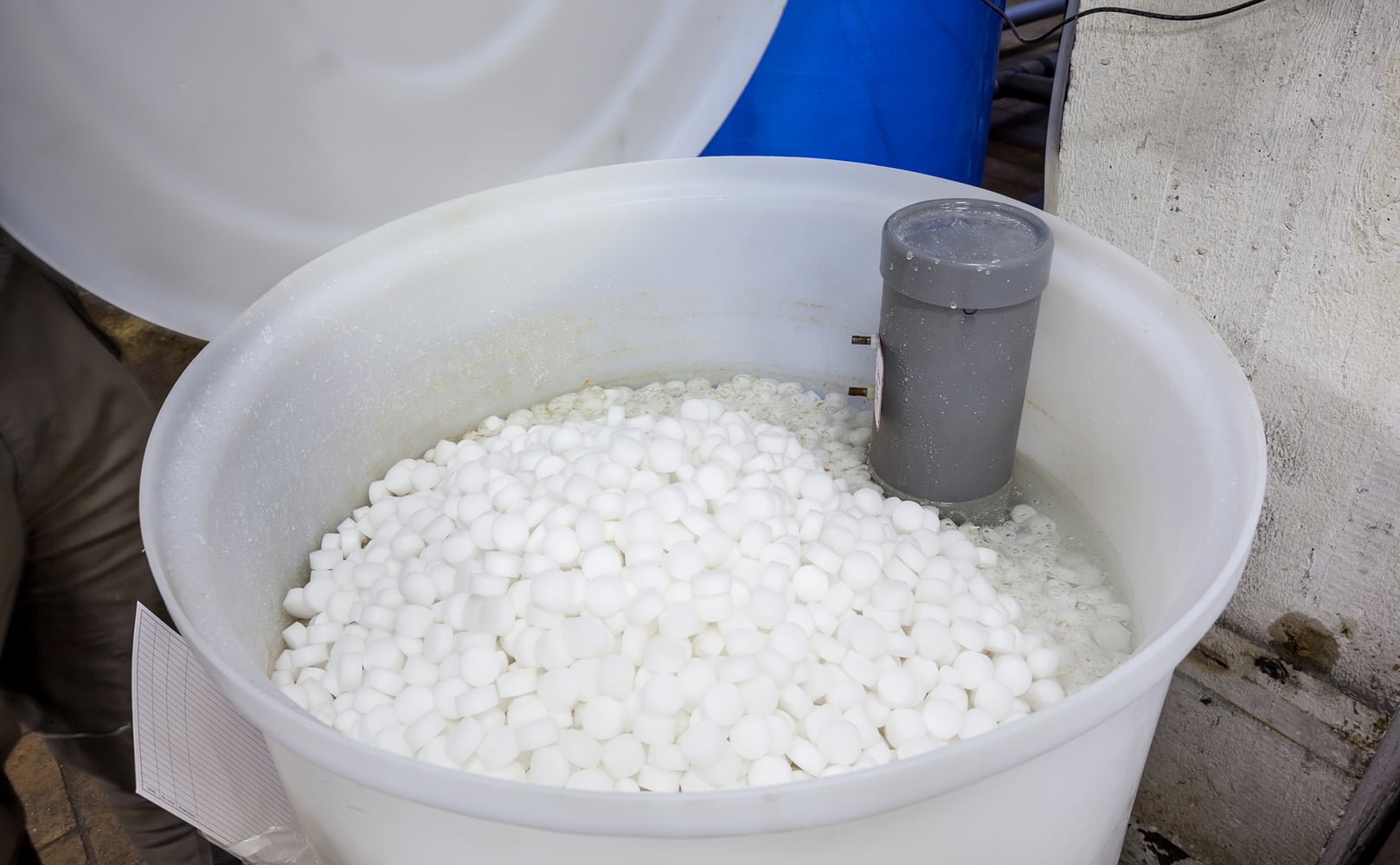Pros and Cons of Reverse Osmosis Drinking Water | Full Overview
Written by: Gene Fitzgerald // Last Updated: Jun 23, 2023
This page may contain affiliate links. If you buy a product or service through such a link we earn a commission at no extra cost to you. Learn more.
Most people are aware by now that filtered water comes with many advantages.
That’s why some spend so much money on bottled water all the time. But there are more efficient solutions available.
Drinking filtered water at home is now perfectly feasible for most people. And of all the options available on the market, reverse osmosis water stands out as one of the most effective and budget-friendly ones.
But what are the pros and cons of RO water precisely?
Key Takeaways
The pros and cons of RO water are:
- It’s healthy and safe to drink.
- It tastes pure and thus aids proper hydration.
- You can use it for cooking without impurities altering the taste of your food.
- If you use your own RO system at home you can stop buying bottled water and thereby save money plus reduce your plastic footprint.
- RO water is even cleaner than many bottled waters.
- It produces crystal-clear ice cubes.
- It’s free from sodium in case you are on a salt-restricted diet.
- The RO process wastes some water, it removes healthy minerals, and makes water pH slightly acidic.
The Pros and Cons of Reverse Osmosis Drinking Water
Reverse osmosis drinking water provides many benefits. But as with all things in life, it can also bring some potential disadvantages. You have to be aware of what to expect in order to stay healthy and make the most of drinking RO water.
Here are the main advantages and disadvantages of reverse osmosis water.
Pro: Healthy and Safe Water Without Contaminants
Reverse osmosis water is often healthier than tap water by default. That’s because it’s free from contaminants.
Pretty much all water contaminants get removed by the reverse osmosis process. This leaves you with clean, fresh water that you know is good for you.
You might not even be aware of some of the contaminants lurking in your water. Depending on where you live, it’s possible that your water supply is actually quite heavily contaminated. Some of the contaminants that might be present in your water supply include:
- Water disinfectants
- Disinfection byproducts
- Herbicides and pesticides
- Heavy metals
- Microorganisms, including many types of bacteria
Some of those might not be inherently dangerous. However, consuming too much of them over the long term could still be problematic for some people.
Pro: Pristine Water Taste
Removing contaminants from water can also improve its taste and smell. Reverse osmosis water has practically no taste – kind of how water should be. The difference is noticeable pretty much immediately.
Even if your previous water wasn’t that heavily contaminated to begin with, you’re still going to see some improvement. This will also reflect on your tea, coffee, or any other beverages you might be brewing on a daily basis.
Pro: Clean Water for Cooking
Clean RO water is not only good for drinking, but for cooking as well. You might not notice any negative effects of the water you’re using right now, but once you try cooking with reverse osmosis water, the impact will be immediately obvious.
Certain contaminants can even affect the taste of water once they have been thermally processed. That’s why you may not notice any severe issues while you’re drinking your water, but things can get ugly once you start using it for cooking.
Pro: You Drink More
Some people avoid drinking plain water because they associate it with an unpleasant taste or smell. What those people don’t realize is that this is not normal. Water isn’t supposed to taste that way. That’s just the result of all the contaminants floating in it.
Once you’ve tasted pure, fresh water like reverse osmosis water, you might be more inclined to drink more regularly. In addition, you might start purchasing fewer soft drinks and other not-so-healthy beverages.
Pro: No More Single-Use Plastic Bottles
If you invest your money in a reverse osmosis system, you can say goodbye to lugging all those plastic bottles from the store to your home all the time. You will never have to buy single-use plastic bottles again.
This is not only good for you, but for the environment as well. There has been a major global movement to reduce our use of plastic and this is a great way to contribute. You may not even realize how much plastic you’re buying on a daily basis if you’re drinking bottled water.
Pro: More Affordable Than Bottled Water
Not only is reverse osmosis water better for you and the environment, but it’s also cheaper. That’s right – despite getting all of those benefits, you would still end up paying less than you would for regular bottled water.
Even when you consider the initial investment into the setup to produce reverse osmosis water, things still work out in your favor in the long run.
Pro: Cleaner Than Bottled Water
You might be surprised to find out that not all bottled water is actually fresh and clean. Some companies even bottle tap water directly without processing it in any way. You might think that you’re buying healthier water, but you’re not drinking anything different than regular tap water.
This doesn’t apply to all brands of bottled water, but it’s a shockingly prevalent factor on the market. While it’s possible to simply control what you’re purchasing more strictly, drinking reverse osmosis water is usually a more straightforward solution.
Pro: Crystal-Clear Ice Cubes
Chilling your drinks with crystal-clear ice cubes can make a huge difference. You might think it’s only a cosmetic effect, but it can have implications on the taste of your beverages too.
Have you ever noticed that your cubes leave a suspicious residue once they have melted? That’s because of the impurities in the water. Using reverse osmosis water for your ice cubes gets rid of that problem pretty much completely.
Pro: Removes Sodium from Soft Water
If you are using a water softener, you are probably consuming more sodium than the average person. That’s because water softeners work by adding sodium to the water. This is fine for most people, but it could have potentially dangerous implications depending on your diet. If you already eat a lot of salt from other sources, this could push you up to concerning levels.
Dealing with that problem is as simple as drinking reverse osmosis water. The RO process will remove all excess sodium from the water, leaving it clean and pure. That way you can control your sodium intake more directly by focusing on your diet.
Con: Wastewater
One downside to reverse osmosis water is that producing it leads to some wasted water. How much exactly gets wasted depends on the exact setup. You might end up wasting as much as 4 to 5 gallons of water for each one purified. This can mean significant wastage in the long run.
Thankfully, solutions exist to alleviate that problem.
Con: Loss of Healthy Minerals
You might not realize it, but most water naturally contains various minerals which can be good for your health. This mostly depends on where you live and where your water comes from.
However, reverse osmosis water lacks all of those minerals because they get filtered away. In order to avoid any health issues, the WHO recommends reintroducing calcium and magnesium ions back into low-mineral water before use.
Con: Lower Water pH
Reverse osmosis water also has a lower pH level than regular tap water. But this doesn’t really matter. The acidic pH can be balanced out easily.
How Does Reverse Osmosis Water Purification Work?
In essence, reverse osmosis water purification is a mechanically simple process. All it does is force the water through a semipermeable membrane at a high pressure. Because the membrane’s pores are so small, only water molecules can easily pass through them.
All other contents of the water get left behind. This effectively removes pretty much all contaminants. It also accomplishes that without introducing any chemicals or other harmful substances.
If you have any questions about the pros and cons of RO water please don’t hesitate to leave a comment below!
Information provided on BOS is for educational purposes only. The products and services we review may not be right for your individual circumstances.
We adhere to strict editorial guidelines. Rest assured, the opinions expressed have not been provided, reviewed, or otherwise endorsed by our partners – they are unbiased, independent, and the author’s alone. Our licensed experts fact-check all content for accuracy. It is accurate as of the date posted and to the best of our knowledge.



